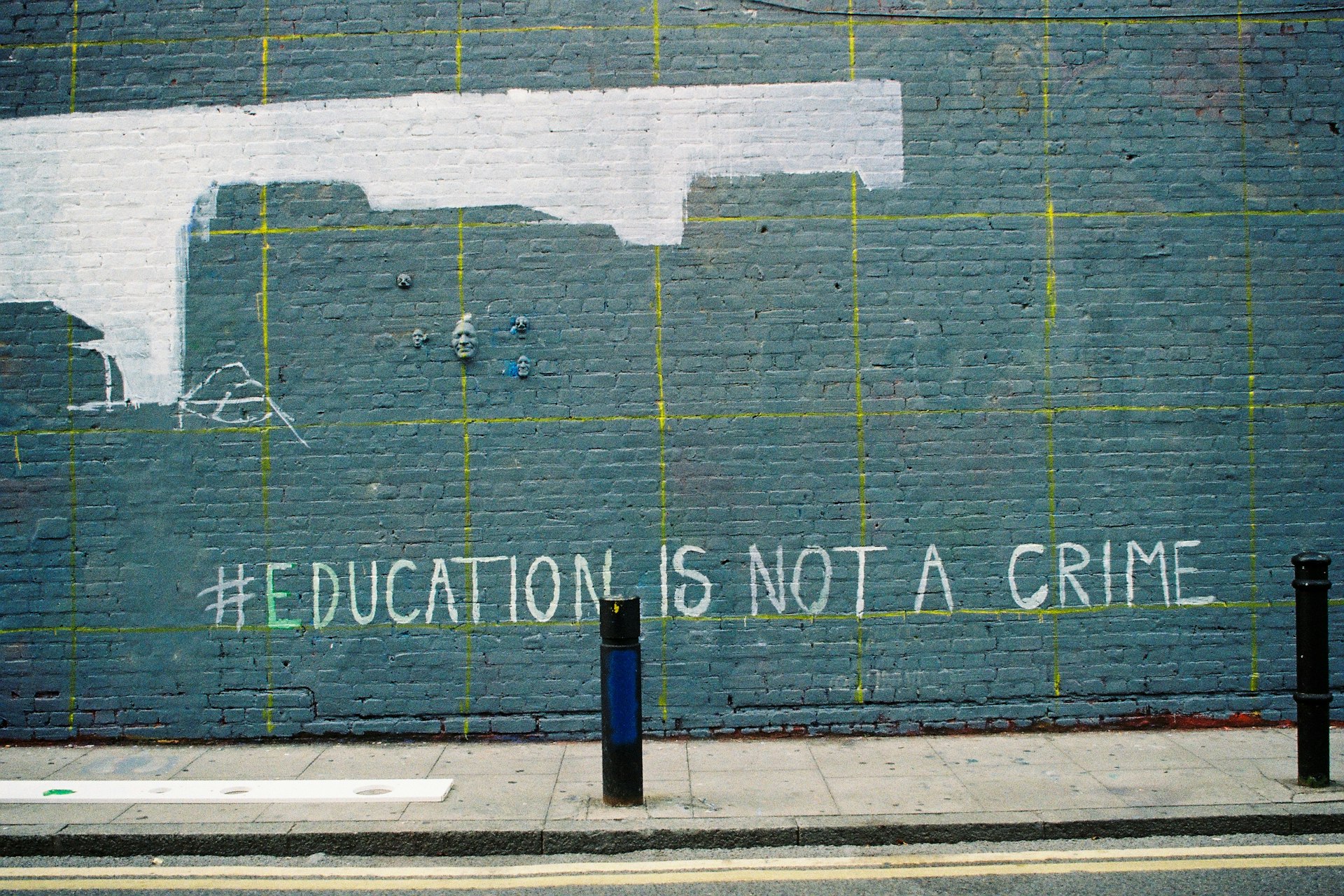Unlocking Your Path: Career Opportunities in Diversity and Inclusion Roles

Photo by Markus Winkler on Unsplash
Introduction
As organizations increasingly recognize the value of diverse perspectives and inclusive cultures, career opportunities in diversity and inclusion (D&I) have expanded across sectors. Whether you are early in your career or seeking a transition, roles in diversity and inclusion offer meaningful ways to drive positive change, foster equitable workplaces, and support underrepresented talent. This guide explores career paths, practical steps to access opportunities, and strategies for making an impact in this vital area.
Understanding Diversity and Inclusion Roles
Diversity and inclusion roles focus on creating equitable, welcoming environments where all employees can thrive. Typical job titles in this field include:
- Diversity and Inclusion Manager
- Director of Equity and Belonging
- Diversity Program Coordinator
- Business Diversity Analyst
- Supplier Diversity Lead
- People & Culture Partner
These positions exist in education, healthcare, corporate, nonprofit, and government settings. Responsibilities may include developing policies, leading training sessions, measuring progress on D&I goals, and addressing systemic barriers to inclusion. For example, coordinators at educational institutions design programs supporting underrepresented students, while corporate directors may lead company-wide initiatives to improve representation and equity [2] .
Essential Skills and Qualifications
Most D&I roles require a combination of soft skills, subject matter knowledge, and, in many cases, relevant experience. Key competencies include:
- Cultural Competence: The ability to understand, communicate with, and effectively interact across cultures.
- Project Management: Managing multiple initiatives and driving organizational change.
- Data Literacy: Analyzing workforce demographics and measuring the impact of D&I efforts.
- Communication Skills: Facilitating workshops, delivering presentations, and engaging stakeholders at all levels.
Employers may require a bachelor’s or master’s degree in human resources, organizational development, psychology, or a related field. However, many organizations prioritize demonstrated commitment to equity and lived experience. Volunteering with community organizations, participating in employee resource groups, and completing D&I certifications can strengthen your qualifications [1] .
Industry Trends and Emerging Opportunities
The diversity and inclusion landscape is rapidly evolving. While some companies have reduced explicit D&I job postings, they continue to embed inclusion efforts into broader talent and leadership strategies. For example, organizations are investing in:
- Leadership development programs for underrepresented groups
- Mentorship initiatives for women and candidates with disabilities
- Supplier diversity programs to engage minority-owned businesses
- Virtual job fairs and outreach to expand talent pipelines
Data analytics and workforce insights platforms, such as those offered by Aura, are also shaping the future of D&I by helping organizations measure progress and identify new opportunities [4] . Candidates with skills in analytics, change management, and program design are in particularly high demand as organizations seek to align diversity strategies with business objectives.
How to Access Career Opportunities in Diversity and Inclusion
Accessing genuine D&I roles requires a strategic approach. Here are step-by-step instructions to help you navigate the search and application process:
- Identify Authentic Employers: Seek organizations with transparent D&I commitments. Look for public reporting on equity metrics, salary transparency, diverse leadership, and inclusive job descriptions. Avoid companies that offer only generic statements without evidence of real action [1] .
- Utilize Specialized Job Boards: Reputable platforms such as Diversity.com offer curated listings for diversity-focused careers. You can also search for D&I roles on mainstream platforms like Indeed and ZipRecruiter using terms like “diversity inclusion manager” or “equity and belonging” [2] , [5] .
- Network with D&I Professionals: Attend industry conferences, webinars, and virtual events. Join professional associations such as the Society for Diversity or local chapters of organizations like the National Diversity Council. These connections can provide insights into open positions and emerging trends.
- Leverage Internal Resources: If you are already employed, get involved in your company’s employee resource groups or volunteer for cross-functional D&I projects. This can lead to internal promotions or lateral moves into dedicated D&I roles [4] .
- Develop Relevant Skills: Consider pursuing certifications in diversity and inclusion management or unconscious bias training. Many universities and professional bodies offer online courses to build your expertise.
- Prepare a Targeted Application: Tailor your resume and cover letter to highlight your D&I achievements, leadership in inclusive initiatives, and concrete results. Quantify your impact where possible-for example, “Implemented mentorship program increasing retention of underrepresented employees by 20%.”
- Interview Preparation: Be ready to discuss your approach to fostering inclusion, handling sensitive issues, and measuring program success. Use examples from past experience to demonstrate your skills and values.
For those seeking public sector or nonprofit roles, you may also search for diversity and inclusion positions through official city, state, or institutional job portals. If you need guidance, contact the human resources department of your target organization or search for “diversity and inclusion” on their official website.
Challenges and Solutions in Pursuing D&I Careers
Job seekers may encounter several challenges, such as:
- Tokenism: Some organizations may prioritize optics over meaningful change. Research potential employers thoroughly-look for evidence of real progress and employee testimonials on platforms like Glassdoor [1] .
- Role Clarity: D&I positions vary widely in scope. During interviews, ask for details about reporting structures, available resources, and organizational support.
- Changing Market Trends: As companies integrate D&I into broader HR functions, explicit D&I roles may decline, but opportunities to lead inclusion initiatives within other departments are growing. Stay adaptable and open to roles that incorporate D&I responsibilities, even if not in the title [4] .
To overcome these challenges, maintain an up-to-date portfolio of your work, continue professional development, and seek mentorship from experienced D&I practitioners. If you encounter limited job postings, broaden your search to related roles in human resources, talent management, or organizational development where you can champion inclusion efforts.
Case Studies and Real-World Examples
Organizations like Kankakee Community College and Walgreens have established dedicated D&I teams, offering roles such as Coordinator of Equity, Diversity & Inclusion and Director of Inclusion. These positions focus on fostering inclusive environments, providing educational opportunities, and leading change management efforts [2] . In large metropolitan areas like Chicago, roles such as Business Diversity Analyst and Supplier Diversity Lead support public school systems and major corporations in advancing equity objectives [3] .
Success in these roles often depends on building cross-departmental alliances, aligning D&I initiatives with business goals, and consistently measuring outcomes. The most impactful professionals demonstrate empathy, adaptability, strategic thinking, and a passion for continuous learning.

Photo by Christina @ wocintechchat.com on Unsplash
Alternative Pathways and Professional Development
If you do not find immediate openings in D&I, consider alternative pathways:
- Lead or participate in employee resource groups (ERGs)
- Volunteer with community-based organizations focused on equity issues
- Pursue interim consulting or project-based work in D&I
- Develop expertise in adjacent areas such as compliance, training, or talent acquisition
Many professionals enter D&I roles after gaining experience in related fields and building a reputation for championing inclusive practices. Stay informed on latest trends by reading reports from sources like Harvard Business Review and attending industry events [1] .
Summary and Key Takeaways
Career opportunities in diversity and inclusion roles offer the chance to create lasting impact within organizations and communities. With strategic job search methods, ongoing skills development, and a commitment to authentic change, you can access meaningful roles that align with your values. Remember to use verified job boards, network with industry professionals, and seek employers with transparent, measurable D&I commitments. For further support, consult official organizational websites or professional associations dedicated to equity and inclusion.
References
[1] Diversity.com (2025). Where to Find Truly Diverse Jobs in 2025. [2] Indeed (2025). Diversity Equity Inclusion Jobs, Employment in Illinois. [3] Indeed (2025). Diversity Inclusion Jobs, Employment in Chicago, IL. [4] Aura (2025). DEI Job Postings Reveal Corporate Inclusion Trends in 2025. [5] ZipRecruiter (2025). Diversity Inclusion Jobs.
MORE FROM 9scholarships.de













